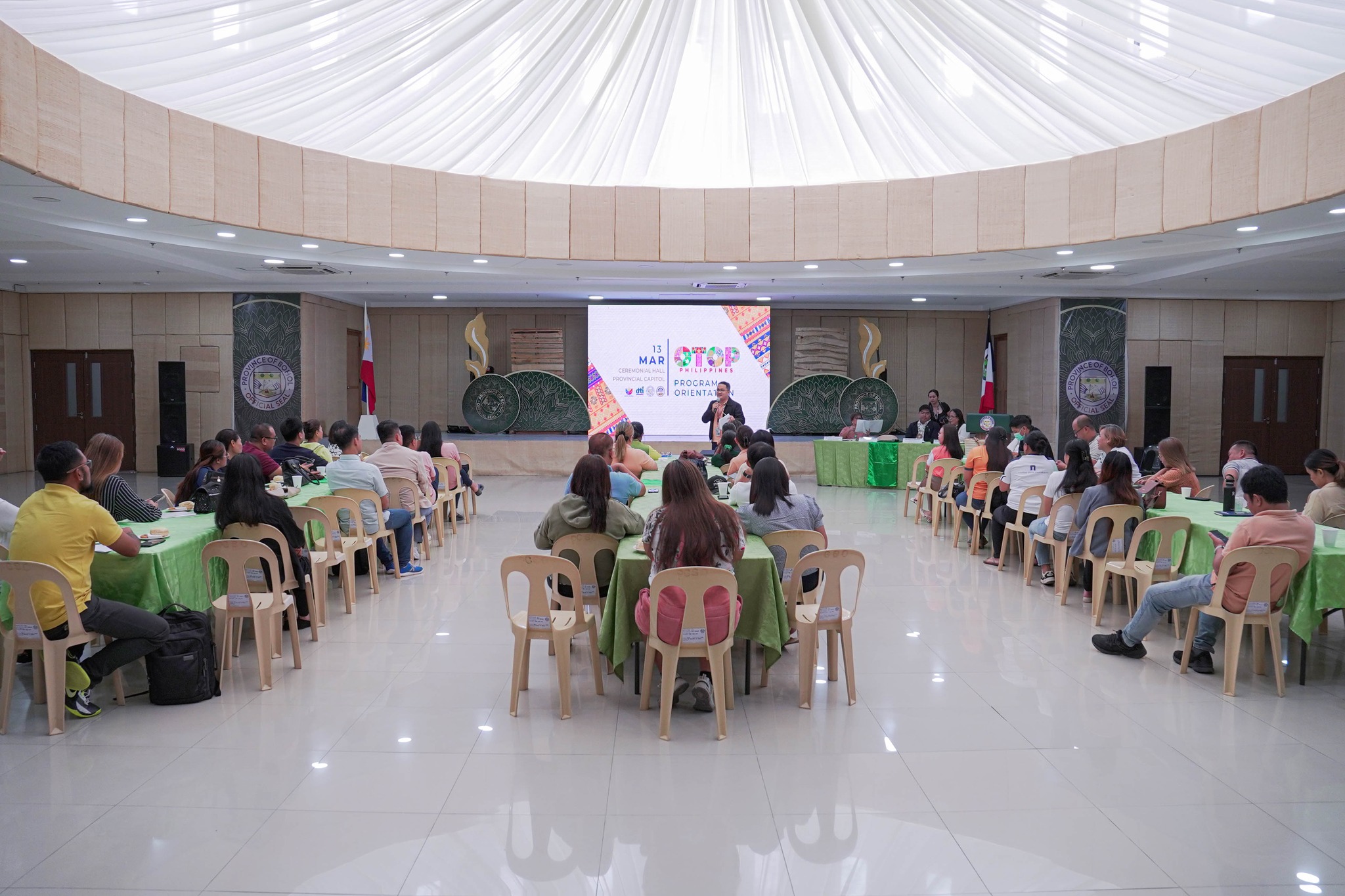
The Provincial Government of Bohol (PGBh), through the Bohol Economic Development and Investment Promotion Office (BEDIPO) headed by Maria Fe Dominise, in collaboration with the Department of Trade and Industry (DTI), held the One Town, One Product (OTOP) Orientation on March 13 at the Ceremonial Hall of the New Provincial Capitol.
The event brought together OTOP-designated personnel from Local Government Units (LGUs) across the province to discuss the program’s framework and implementation.
Provincial Administrator Asteria Caberte highlighted the significance of OTOP as a privilege and an economic tool that leverages a community’s unique local produce.
A key part of the orientation was the discussion on the Salient Points of the OTOP Philippines Act (RA 1160) and the features of the OTOP Program, presented by DTI Bureau of Market Development, Promotions, and OTOP Assistant Director Jerico Namoro.
Meanwhile, DTI Bohol Provincial Director Vierna Teresa Ligan showcased local products that have been developed and assisted under the OTOP initiative.
Inspired by Japan’s One Village, One Product (OVOP) program, the OTOP Philippines Program is a government initiative that aims to stimulate the growth of micro, small, and medium enterprises (MSMEs) by developing indigenous raw materials, utilizing local skills and talents, and highlighting traditional craftsmanship and culture.
The program seeks to strengthen rural economies by making them more market-oriented and innovation-driven while fostering collaboration between LGUs, national government agencies, and the private sector in the promotion of Philippine products for both domestic and international markets.
A key component of this initiative is the formulation of a National OTOP Strategic Development Plan.
Supporting agencies for OTOP include the CDA, DA, DICT, DILG, DOH, DOST, DOT, DOTr, NEDA, NCCA, PIA, PITC, and TESDA.
In addition to these efforts, OTOP Hubs have been officially launched as physical and online marketplaces where locally made products can be showcased and sold to a wider audience.
These hubs are strategically located in high-traffic areas such as airports, seaports, bus terminals, malls, and popular tourist destinations.
To enhance accessibility, LGUs are encouraged to establish their own OTOP Hubs in high-foot-traffic locations, preferably in city or municipal halls or other frequently visited government facilities.
The DTI, in coordination with various agencies, will develop a comprehensive marketing and operations plan for these hubs.
The program covers a wide range of products and services, including processed foods, agricultural-based goods, home and fashion items, creative artisanal products, arts and crafts, and skill-based services.
Only MSMEs, as defined under R.A. 6977 (amended by R.A. 9501), are eligible for assistance under the program.
The initial funding for the OTOP initiative will be sourced from the current budget of the DTI, ensuring support for local enterprises and economic growth at the grassroots level.
This initiative aligns with the Aumentado-Baja administration’s vision of fostering economic resilience, local entrepreneurship, and community-driven innovation, ultimately contributing to a sustainable and inclusive economy in Bohol.